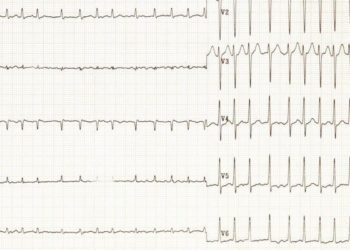Tight glycemic control in pediatric ICU does not reduce mortality
Image: PD/Navy
1. Among critically ill children admitted to PICU, tight glycemic control had no significant impact on clinical outcomes compared to conventional control.
2. Tight glycemic control was associated with lower mean 12-month cost, an observation that was most prominent in patients without prior cardiac surgery.
Evidence Rating Level: 1 (Excellent)
Study Rundown: This study attempts to answer one important question – should tight glycemic control with insulin infusion be the standard of care for critically ill children? The answer may not be straightforward. The current study revealed a complex benefit and harm relationship. Tight glycemic control had no significant impact on mortality at 12 months. While it was associated with a lower proportion of patients needing renal replacement therapy, it also resulted in more episodes of hypoglycemia. It is important to note that in the subgroup of patients with prior cardiac surgery, 10.6% of patients who had at least one hypoglycemic episode died. Tight glycemic control was also associated with lower mean 12-month costs per patient, an observation that was most prominent among patients without prior cardiac surgery. The complex benefit versus risk profile emphasizes the need for careful risk stratification and individualization of care. The study was performed in the British health care system and so the cost-of-care data will have limited applicability to the US health care system.
The study was funded by the National Institute for Health Research, UK NHS.
Click to read the study, published today in NEJM
Click to read an accompanying editorial in NEJM
Relevant Reading: Persistent hyperglycemia in critically ill children
Study author, Dr Duncan Macrae, FRCA, talks to 2 Minute Medicine: Director of Children’s Services, Royal Brompton & Harefield NHS Foundation Trust
“The findings of our study have important implications for the way blood glucose levels are managed in very sick children. Although we do not fully understand why controlling blood glucose levels during a child’s most critical days leads to a quicker recovery, evidence from this study suggests that doctors caring for very sick children, who have not undergone heart surgery, should consider controlling blood glucose levels more closely during intensive care.”
In-Depth [randomized, controlled study]: This multi-centre, randomized study assessed the impact of tight glycemic control in critically ill children on clinical outcomes and cost of care. A total of 1369 critically ill children admitted to PICU were randomized in a ratio of approximately 1:1 to either tight glycemic control (target range, 72 to 126 mg/dL) or conventional glycemic control (target range, below 216 mg/dL). The primary outcome was the number of days alive and free from mechanical ventilation at 30 days.
Overall, the mean between-group difference in the primary outcome was 0.36 days (95% confidence interval [CI], -0.42 to 1.14). The tight-glycemic-control cohort had a higher proportion of patients with hypoglycemia (12.5% vs. 3.1% for moderate hypoglycemia, P<0.001; 7.3% vs. 1.5% for severe hypoglycemia, P<0.001). Tight control was associated with a lower proportion of patients receiving renal replacement therapy (odds ratio, 0.63; 95% CI, 0.45 to 0.89). In the subgroup analysis, 10.6% of patients with prior cardiac surgery who had a least one hypoglycemic episode died, as compared to the 2.1% mortality rate in patients with one episode of hypoglycemia without prior cardiac surgery (P<0.001). Overall mortality was similar in the two groups at 12 months (73 in the tight-glycemic-control group and 71 in the conventional-control group, hazard ratio, 1.00, P=0.99).
In both the overall group and the cardiac surgery subgroup, the two study groups had similar mean costs at 30 days and similar proportions of patients remained hospitalized at each time point. However, in the subgroup without prior cardiac surgery, tight glycemic control was associated with lower mean costs and lower proportions of patients still hospitalized at 30 days, 60 days, and 90 days.
In cost analysis, tight glycemic control was associated with a lower mean 12-month cost (difference per patient, -$4,815). This was more pronounced in the subgroup without prior cardiac surgery (difference per patient, -$13,120).
By Xiaozhou Liu and Adrienne Cheung
More from this author: Nivolumab plus ipilimumab shows promise for metastatic melanoma, Prophylactic platelet transfusions prevent bleeding in hematologic cancers, Azithromycin is not associated with increased cardiovascular death in low-risk groups, Health education module reduces parasitic infections, New chemotherapy precludes the need for radiotherapy in primary mediastinal B-cell lymphoma
©2012-2014 2minutemedicine.com. All rights reserved. No works may be reproduced without expressed written consent from 2minutemedicine.com. Disclaimer: We present factual information directly from peer reviewed medical journals. No post should be construed as medical advice and is not intended as such by the authors, editors, staff or by 2minutemedicine.com. PLEASE SEE A HEALTHCARE PROVIDER IN YOUR AREA IF YOU SEEK MEDICAL ADVICE OF ANY SORT.







